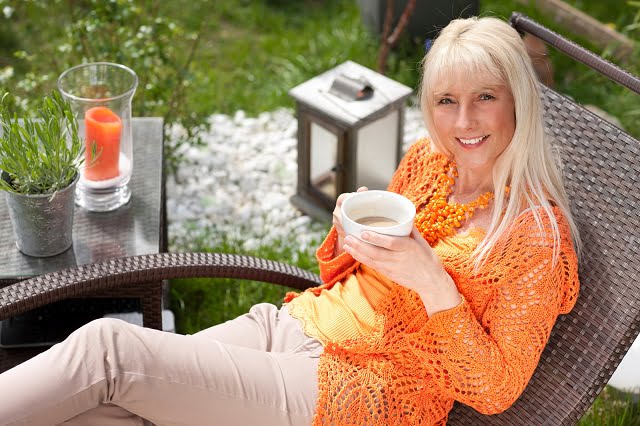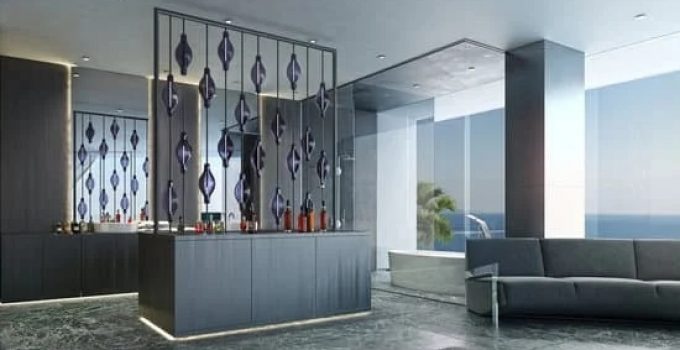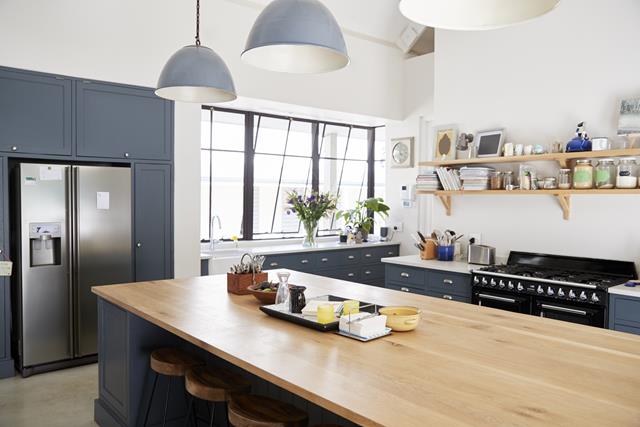Are you looking to sell your home and want to make sure it stands out in the market? Knowing how to decorate a home to sell is essential in today’s competitive real estate market.
Home staging can significantly impact the ability to attract potential buyers and ultimately sell your property for top dollar. In this article, we will delve into the importance of home staging and provide valuable tips on how to effectively decorate a home to make it appealing to potential buyers.
When it comes to selling a home, first impressions are crucial. Potential buyers need to be able to envision themselves living in the space, and that’s where home staging comes into play.
By creating a clean canvas for potential buyers, neutralizing the color palette, highlighting key features, maximizing space and flow with furniture arrangement, brightening up the space with proper lighting, improving curb appeal, and adding final touches, you can significantly increase the chances of selling your home quickly and for a higher price.
Home staging is not just about making the home look pretty – it’s about strategically presenting it in a way that maximizes its appeal and showcases its full potential. The following sections will provide detailed insights into each step of the home staging process, offering practical tips and techniques that can help you achieve a successful sale.
Whether you’re working with a professional stager or taking on the task yourself, these expert strategies will guide you through the process of decorating your home to sell.
Decluttering
When it comes to selling a home, decluttering is a crucial step in preparing the space for potential buyers. A cluttered home can make it difficult for buyers to see the potential of the space, which is why creating a clean and organized canvas is essential. Here are some tips on how to declutter a home to sell:
- Start by going through each room and removing any unnecessary items. This includes personal belongings, knick-knacks, and excess furniture. Consider storing these items off-site or in storage to open up the space and allow buyers to envision their own belongings in the home.
- Clear out closets and storage spaces as well. Potential buyers will want to see ample storage options, so make sure closets are neat and organized. This also gives the impression that the home has plenty of storage space.
- Consider hiring a professional organizer if needed. Sometimes it can be overwhelming to tackle decluttering on your own, especially if you have lived in the home for many years. A professional organizer can help streamline the process and offer valuable insight on how to best showcase the home.
By decluttering your home, you are creating a blank slate for potential buyers to envision themselves living in the space. This is an essential step in preparing a home for sale and can significantly impact its appeal to prospective buyers.
Neutralizing
When it comes to preparing a home for sale, one important aspect that should not be overlooked is the use of a neutral color palette. Neutralizing the color scheme of a home can have a significant impact on the appeal of the property to potential buyers. By utilizing neutral colors, you can create a blank canvas that allows potential buyers to envision themselves in the space, making it easier for them to imagine living in the home.
One of the key benefits of using neutral colors when decorating a home to sell is that they have a broad appeal. Neutral tones such as whites, beiges, grays, and soft earthy tones are generally pleasing to most people and create a sense of calm and tranquility.
This can make the space feel more welcoming and inviting to potential buyers. Additionally, neutral colors also help to make rooms appear larger and brighter, which can be particularly beneficial for smaller or dimly lit spaces.
To implement a neutral color palette effectively, it’s important to apply these tones not only to the walls but also to key elements throughout the home such as flooring, cabinetry, and fixtures. By ensuring consistency in the color scheme across different areas of the home, you can create a cohesive and harmonious look that enhances the overall appeal of the property.
When considering how to decorate a home to sell, remember that neutrals don’t have to mean boring – you can add visual interest through texture, pattern, and subtle pops of color in accessories or artwork while still maintaining an overall neutral aesthetic.
Highlighting Key Features
When it comes to selling a home, it is crucial to highlight its key features in order to make a lasting impression on potential buyers. One of the most effective ways to do this is by strategically decorating and staging the home to draw attention to its best qualities. But how exactly can you achieve this?
First and foremost, it’s important to identify what makes your home special. Whether it’s a beautiful fireplace, high ceilings, or stunning architectural details, these unique features should be the focal point of your decor. By carefully selecting furniture and accessories that complement and accentuate these aspects, you can effectively draw attention to them.
In addition to furniture arrangement, strategic lighting can also play a significant role in highlighting key features. Well-placed lights can draw focus to specific areas of the home while creating an inviting ambiance. This can be especially impactful when showcasing architectural elements or scenic views. By properly illuminating these features, you can make them stand out and leave a memorable impression on potential buyers.
| Key Features | Decorating Strategy |
|---|---|
| Fireplace | Use statement furniture or artwork around the fireplace to draw focus towards it. |
| High Ceilings | Hanging large art pieces or installing decorative light fixtures can help emphasize high ceilings. |
| Architectural Details | Select furniture arrangements that allow these details to remain visible and unobstructed. |
Lighting
When it comes to selling a home, the right lighting can make all the difference in how potential buyers perceive the space. Proper lighting can brighten up a room, make it feel more inviting, and showcase the home’s best features. Here are some tips on how to decorate a home to sell by using the right lighting techniques.
First and foremost, maximize natural light. Open up curtains and blinds to let in as much natural light as possible. Natural light not only makes spaces appear larger and more inviting, but it also has a positive effect on mood and overall well-being. If the home lacks natural light, consider adding mirrors strategically to bounce light around and make the space feel brighter.
In addition to natural light, it’s important to have well-placed artificial lighting. Make sure each room is well-lit with overhead lighting, lamps, and accent lights. Avoid harsh fluorescent lighting and opt for soft, warm bulbs instead. Consider updating light fixtures if they are outdated or dimming over time. Proper lighting not only brightens up a space but also makes it feel cozier and more inviting for potential buyers.
Finally, don’t forget about exterior lighting. A well-lit exterior not only enhances curb appeal but also makes the home feel safer and more welcoming. Consider adding pathway lights, porch lights, or landscape lighting to highlight the exterior of the home during evening showings.
| Tip | Description |
|---|---|
| Maximize Natural Light | Open curtains and utilize mirrors to enhance natural light |
| Update Light Fixtures | Consider updating outdated fixtures for a modern look |
| Add Exterior LightingEnhance curb appeal with pathway lights and porch lights |
Furniture Arrangement
When it comes to staging a home for sale, the arrangement of furniture plays a crucial role in maximizing space and creating a smooth flow throughout the property. Potential buyers want to be able to envision themselves living in the space, and proper furniture placement can help them see the full potential of each room.
Open Up the Space
One of the key goals in arranging furniture for staging is to create an open and spacious feel. This may involve removing unnecessary pieces of furniture or rearranging them to allow for more open pathways and a sense of airiness. By opening up the space, potential buyers can more easily imagine their own belongings in the home.
Focal Points and Functionality
It’s important to highlight the focal points of each room while also ensuring that the furniture serves a functional purpose. Whether it’s positioning seating towards a fireplace or creating a cozy reading nook by a window, each piece should contribute to showcasing how the space can be used effectively.
Flow Between Rooms
Another essential aspect of furniture arrangement for staging is creating a smooth flow between rooms. This can be achieved through thoughtful placement of items to guide natural traffic patterns, as well as ensuring that there is enough space for easy movement from one area to another. Seamless transitions between rooms can give buyers a positive impression of the overall layout and design of the home.
By understanding
Curb Appeal
When it comes to selling a home, first impressions are everything. Curb appeal plays a crucial role in attracting potential buyers and setting the stage for what they can expect to find inside the property. Here’s how to spruce up the exterior of your home to make a great first impression.
Landscaping
One of the most important aspects of curb appeal is the landscaping. A well-maintained lawn, trimmed bushes, and colorful flowers can instantly enhance the overall look of your home. Consider planting seasonal flowers or adding potted plants near the entrance to create a welcoming atmosphere.
Exterior Maintenance
Before putting your home on the market, take the time to make any necessary repairs to the exterior. This includes fixing any peeling paint, cleaning windows and gutters, and power washing the siding or brick. A fresh coat of paint on doors and shutters can also go a long way in boosting curb appeal.
Welcoming Entrance
The front entrance sets the tone for the rest of the home. Make sure it is clean and inviting by adding a new welcome mat, updating house numbers, and adding some potted plants or seasonal decor. A well-lit entrance with outdoor lighting fixtures can also make a big difference in creating an inviting atmosphere for potential buyers.
By paying attention to these details when decorating the exterior of your home, you can greatly increase its curb appeal and create a positive first impression for potential buyers as they approach your property. Good curb appeal will entice them to come inside and see more of what your home has to offer as they continue their journey through each room within your house.
Final Touches
When it comes to selling a home, the final touches can make all the difference in creating a warm and inviting atmosphere for potential buyers. These small details can significantly impact their overall impression of the property. Here are some final touches to consider when decorating a home to sell:
- Fresh Flowers: A simple vase of fresh flowers can add a pop of color and a pleasant fragrance to any room. Choose flowers that complement the space and add a touch of nature to the environment.
- Cozy Textiles: Adding soft, textured pillows and throws to sofas and beds can create a cozy, inviting feel. Stick with neutral colors and natural fabrics to appeal to a wide range of tastes.
- Artwork and Mirrors: Selecting artwork that complements the style of the home can add personality and character to the space. Additionally, strategically placing mirrors can make rooms feel larger and brighter.
By incorporating these final touches into your staging efforts, you can help potential buyers envision themselves living in the space. The goal is to create an emotional connection with them, making it more likely that they will see themselves calling this house their new home.
Remember, when decorating a home to sell, less is often more. Avoid overloading spaces with too many accessories or personal items, as this can distract buyers from seeing the true potential of the property. Instead, focus on simple yet impactful details that enhance the overall ambiance of the home.
Conclusion
In conclusion, home staging plays a significant role in the successful sale of a property. By following the steps outlined in this article on how to decorate a home to sell, sellers can effectively transform their spaces into appealing and marketable homes that potential buyers will find attractive. The process of decluttering, neutralizing, highlighting key features, optimizing lighting, arranging furniture strategically, enhancing curb appeal, and adding final touches all contribute to creating an inviting and desirable environment for potential buyers.
When implementing these tactics, sellers are effectively setting the stage for potential buyers to envision themselves living in the home. By creating a clean canvas with neutral colors, showcasing the best qualities of the home, and making it feel warm and inviting with thoughtful final touches, sellers significantly increase the likelihood of selling their property quickly and at a desired price point.
Ultimately, understanding how to decorate a home to sell is crucial for anyone looking to effectively market their property. By investing time and effort into staging a home properly, sellers can make a lasting impression on potential buyers and stand out in today’s competitive real estate market. Whether working with a professional stager or taking on the task themselves, sellers should prioritize staging as an essential aspect of preparing their home for sale.
Frequently Asked Questions
How Do I Make My House Look Appealing When Selling?
When selling your house, making it look appealing is essential. Start by decluttering and cleaning thoroughly, as a clean and tidy space attracts potential buyers. Consider adding fresh coats of paint, updating fixtures, and adding some decorative elements for a modern and inviting feel.
How to Decorate Your House for Resale?
Decorating your house for resale involves creating a neutral and inviting atmosphere. Stick to a neutral color palette for walls and furniture to appeal to a broader audience. Adding some greenery, artwork, and tasteful décor can also help potential buyers envision themselves living in the space.
How Should Your House Look When Selling?
Your house should look well-maintained, clean, and welcoming when selling it. This means taking care of any necessary repairs, deep cleaning the entire space, and ensuring that it is well-lit. Additionally, consider staging the home with minimal furniture and décor to showcase its potential without overwhelming prospective buyers.

Hello, lovely readers! I’m Sheila Collins, and I’m delighted to be your trusted guide on this exciting journey of home improvement, design, and lifestyle. As the founder and editor-in-chief of Home Guide Blog, I’m passionate about all things related to homes, and I’m here to share my knowledge, experiences, and insights with you.





